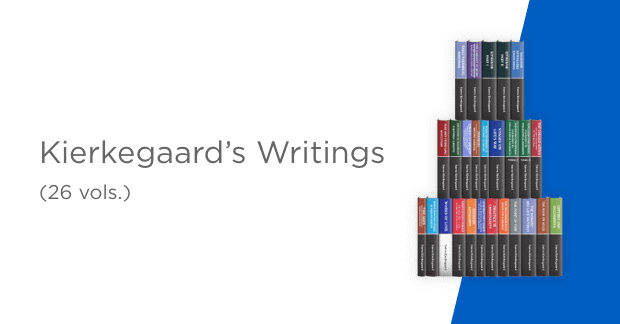Danish theologian and philosopher Søren Kierkegaard addressed the greatest troubles he saw in his day, including faithlessness, despair, and anxiety. He lived during the Industrial Revolution, in a time when humanity’s scientific potential outweighed the possibilities of faith. Kierkegaard’s writing serves as a corrective for our postmodern era, helping us return faith to the focus of our lives.
In this excerpt from his book, Fear and Trembling, Kierkegaard holds up the example of Abraham as one who exhibited the kind of faith necessary for true greatness.
***
No one who was great in the world will be forgotten, but everyone was great in his own way, and everyone in proportion to the greatness of that which he loved. He who loved himself became great by virtue of himself, and he who loved other men became great by his devotedness, but he who loved God became the greatest of all.
Everyone shall be remembered, but everyone became great in proportion to his expectancy. One became great by expecting the possible, another by expecting the eternal; but he who expected the impossible became the greatest of all.
Everyone shall be remembered, but everyone was great wholly in proportion to the magnitude of that with which he struggled. For he who struggled with the world became great by conquering the world, and he who struggled with himself became great by conquering himself, but he who struggled with God became the greatest of all.
Thus did they struggle in the world, man against man, one against thousands, but he who struggled with God was the greatest of all. Thus did they struggle on earth: there was one who conquered everything by his power, and there was one who conquered God by his powerlessness.
There was one who relied upon himself and gained everything; there was one who in the security of his own strength sacrificed everything; but the one who believed God was the greatest of all.
There was one who was great by virtue of his power, and one who was great by virtue of his wisdom, and one who was great by virtue of his hope, and one who was great by virtue of his love, but Abraham was the greatest of all, great by that power whose strength is powerlessness, great by that wisdom whose secret is foolishness, great by that hope whose form is madness, great by the love that is hatred to oneself.
By faith Abraham emigrated from the land of his fathers and became an alien in the promised land. He left one thing behind, took one thing along: he left behind his worldly understanding, and he took along hls faith. Otherwise he certainly would not have emigrated but surely would have considered it unreasonable.
By faith he was an alien in the promised land, and there was nothing that reminded him of what he cherished, but everything by its newness tempted his soul to sorrowful longing. And yet he was God’s chosen one in whom the Lord was well pleased! As a matter of fact, if he had been an exile, banished from God’s grace, he could have better understood it—but now it was as if he and his faith were being mocked.
There was also in the world one who lived in exile from the native land he loved. He is not forgotten, nor are his dirges of lamentation when he sorrowfully sought and found what was lost. There is no dirge by Abraham. It is human to lament, human to weep with one who weeps, but it is greater to have faith, more blessed to contemplate the man of faith.
***
This post has been adapted from Kierkegaard, Søren. Fear and Trembling | Repetition, trans. Howard V. Hong and Edna H. Hong. Princeton: Princeton University Press, 1983.
Save 50% when you pre-order Kierkegaard’s Writings (26 vols.). Once the collection ships, the price goes up, so take advantage of the opportunity. Add wisdom from one of the greatest minds of the twentieth century to your library.





